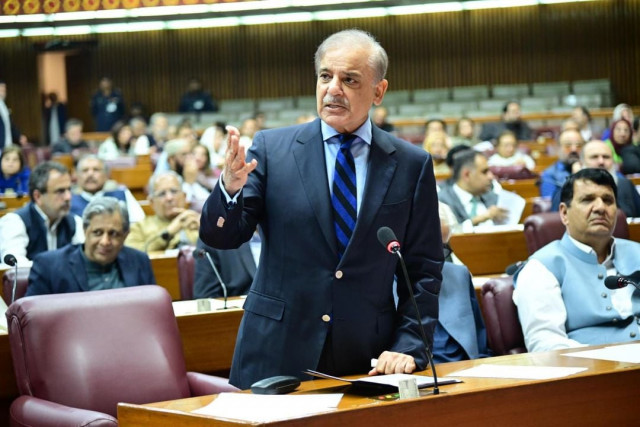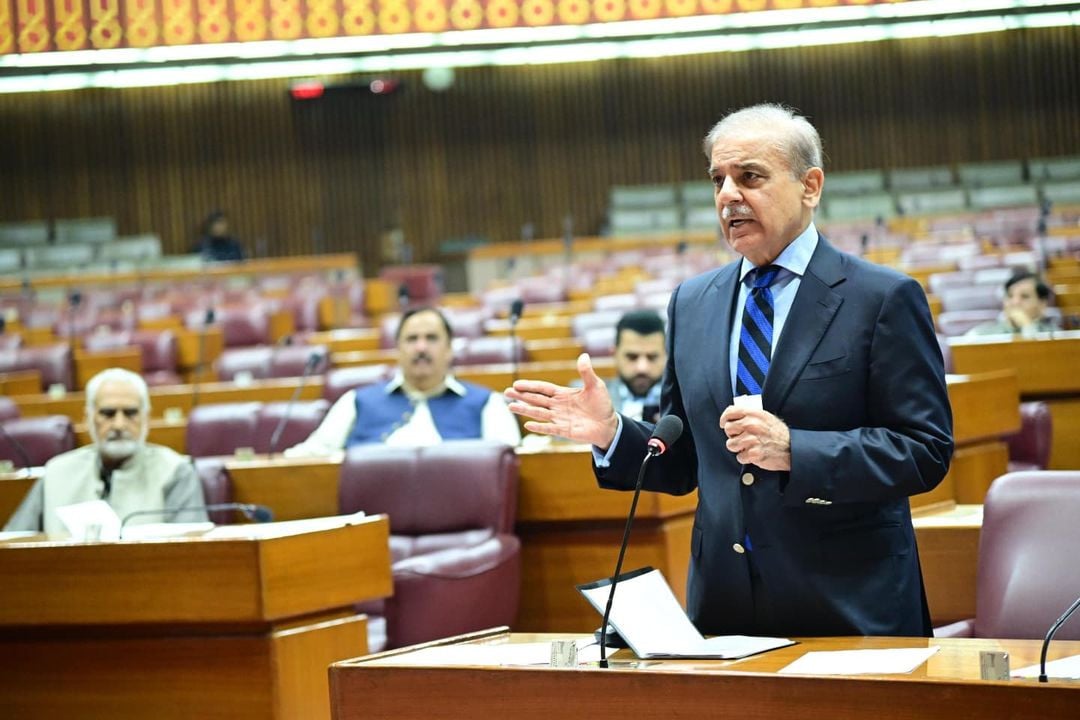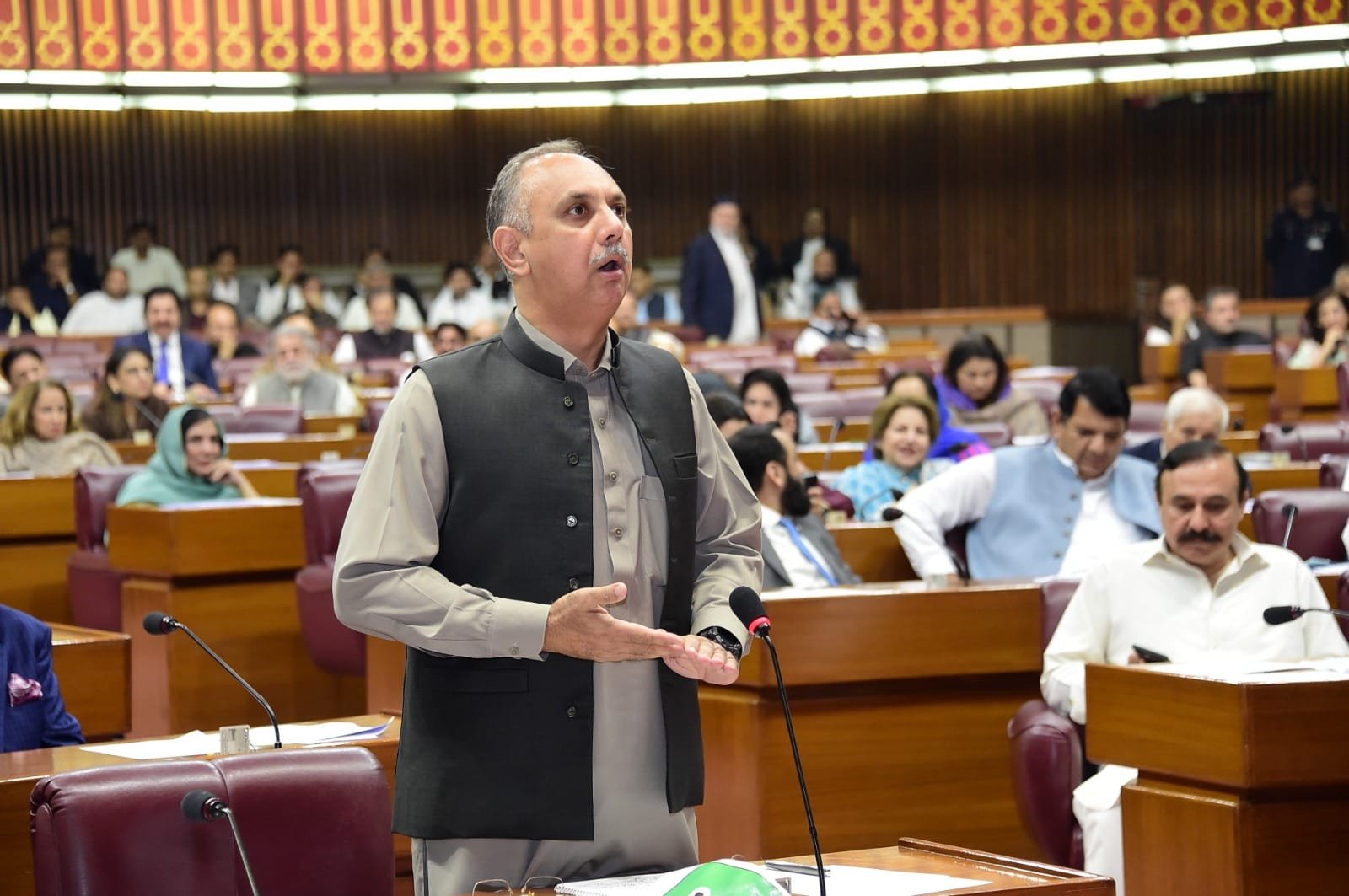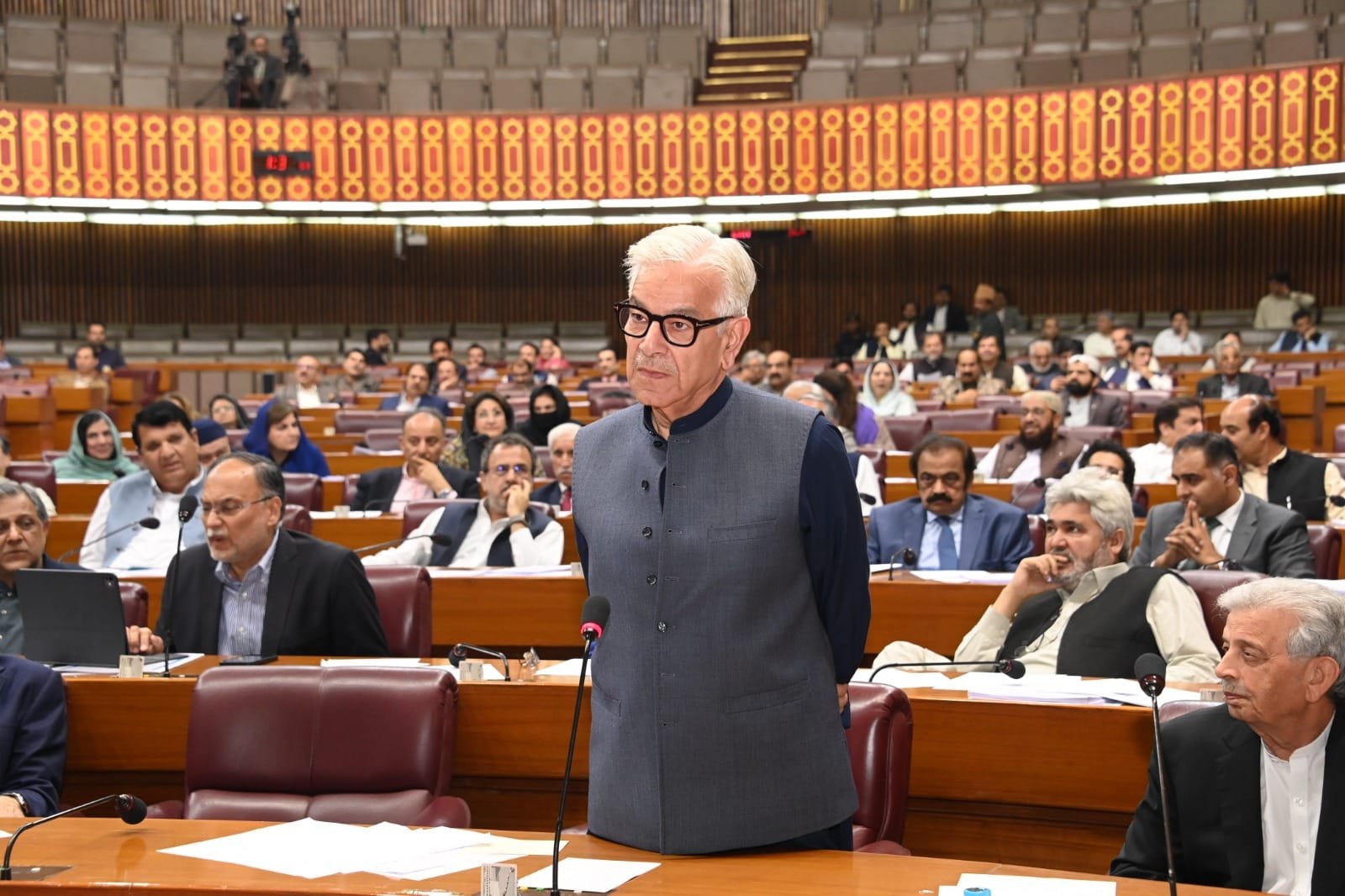PM Shehbaz hails passage of 26th amendment as 'national consensus' victory
Premier praised Bilawal Bhutto for his efforts on the amendment, and thanked JUI-F chief Fazl for support.

Prime Minister Shehbaz Sharif has praised the unanimous passage of the 26th constitutional amendment by Pakistan’s Parliament, calling it a "shining example of national consensus".
Addressing the joint session after the Senate and National Assembly approved the amendment by a two-thirds majority, Shehbaz said it marks a "great day" in the country’s history.

He noted that the amendment fulfills the incomplete vision of the Charter of Democracy, which was initiated by former leaders Benazir Bhutto and Nawaz Sharif.
The prime minister expressed that the era of dismissing elected prime ministers is now over, and Parliament has demonstrated its strength and unity.
Shehbaz Sharif commended Bilawal Bhutto-Zardari for his sincere efforts in making the amendment a reality and thanked Maulana Fazlur Rehman for his contributions to advancing Pakistan's best interests.

He added that the approval of the amendment sends a strong message that all political parties prioritised the nation’s future over personal interests.
The prime minister concluded by stating that these constitutional amendments will pave the way for easier access to justice and secure Pakistan’s future.
Late on Sunday, after the Senate passed the 26th Constitutional Amendment Bill 2024 with a two-thirds majority on Sunday evening, the National Assembly also passed the heavily contested bill with a two-thirds majority.
The government needed to secure 224 votes to go over the line and it managed to secure 225 votes as some opposition members staged a walk out.
The bill has been in development for some time, with discussions facilitated by a special parliamentary committee formed last month. The committee included representatives from all political parties, including the PTI, and reviewed various proposals to finalise the bill's content.
After a brief recess, Pakistan People’s Party (PPP) Chairman Bilawal Bhutto-Zardari addressed the assembly, delivering a speech lasting over 50 minutes. He expressed his appreciation for Jamiat Ulema-e-Islam (F) Chief Maulana Fazlur Rehman, recognizing his pivotal role in facilitating the bill's passage.

However, PTI’s Leader of the Opposition in the National Assembly, Omar Ayub Khan, took the opportunity to criticise the amendments, arguing that they failed to reflect the true will of the Pakistani people.
He directed a pointed remark at Law Minister Tarar and Bilawal, suggesting that those who had “gone missing” should also have been acknowledged during the expressions of thanks.
The PTI alleged that seven of its lawmakers had been “abducted” and accused the government of attempting to enact the amendment under duress. Questioning the urgency of the amendment’s passage, Ayub asked, “What would have happened had it been passed on October 31?.”
He further expressed concern that the amendments aimed to undermine judicial independence, asserting, “We do not think this government is capable of bringing constitutional amendments. Therefore, we have instructed PTI members not to become part of this process.”
The Charter of Democracy was signed on May 14, 2006, in London by major political parties as a response to the military rule of General Pervez Musharraf. Its purpose was to foster democratic principles and to safeguard against the misuse of power by unelected bodies, including the military and judiciary.

Furthermore, JUI-F chief praised all political parties, including the PTI, for their roles in facilitating the successful passage of the bill.
Rehman remarked, “The discussions we are having and the amendments we are considering stem from concerns regarding Supreme Court judges seeking extended terms. Upon learning of these developments, I raised the issue in the assembly and advocated for a constitutional amendment to prevent any conflict between the legislature and judiciary.”
He noted his commitment to the Charter of Democracy, which symbolises a collective agreement. “It called for the establishment of a constitutional court, and we have upheld our commitment to it, even as divisive resolutions have emerged in various forums.”
Rehman stated that the Constitution would remain a steadfast pillar, regardless of the ever-changing political environment. “These amendments reflect the commitments made between the nation and the provinces,” he stated.
Rehman further revealed that while the parties initially agreed on 65 clauses, extensive discussions led to the finalization of 22 clauses.
Addressing the PTI's concerns and Imran Khan’s imprisonment, he remarked, “The leader of the PTI is currently in jail under dire circumstances; such news is unacceptable.” He condemned the harsh treatment of any political leader, adding, “Had I anticipated the fate that awaited Imran Khan, I would have spoken out against it at the time.”
He also acknowledged attempts to create division within the opposition, asserting, “I have worked tirelessly to ensure unity among opposition parties and between the government and the opposition.”
Rehman reflected on the challenges faced, noting, “Despite numerous discussions with stakeholders, we could not agree on the formation of the courts. This is a democracy, not a dictatorship. We have accomplished the extraordinary despite significant difficulties.”



















COMMENTS
Comments are moderated and generally will be posted if they are on-topic and not abusive.
For more information, please see our Comments FAQ